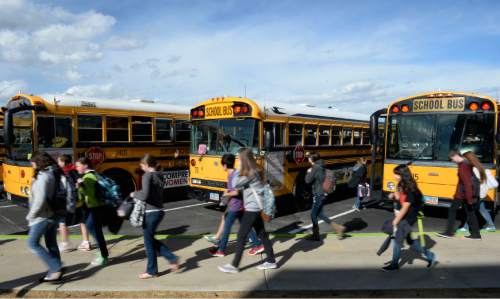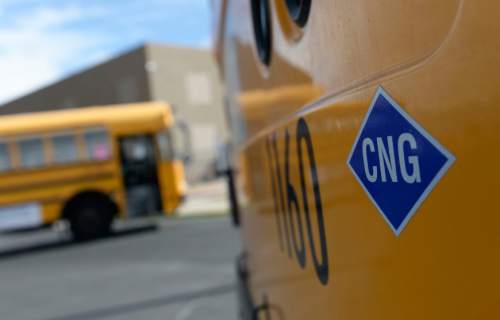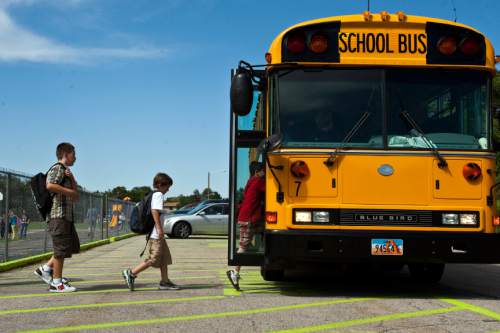This is an archived article that was published on sltrib.com in 2015, and information in the article may be outdated. It is provided only for personal research purposes and may not be reprinted.
Due to some opposition to the idea of discarding working school buses, House lawmakers decided to delay voting for a bill that would fund the replacement of old, polluting school buses with new ones that run on clean energy.
HB49 would allocate $20 million to state school districts and charter schools to get rid of all school buses manufactured before 2002. They would be replaced with new buses that run on diesel fuel or alternative energy sources such as compressed natural gas, propane, blended biodiesel or electricity.
"This is a critical move in our attempts to clean our air, but more importantly to protect the lives and the health of our young students on and off the buses," said bill sponsor Rep. Stephen G. Handy, R-Layton. He cited studies that said the pollution inside these buses is often even more severe than the emissions outside.
While many representatives voiced their support of the proposal, a few had concerns about the part of the bill that required replaced buses to be made "permanently inoperable."
"One of the lessons learned from Cash for Clunkers is that there was a great market for the vehicles in other areas of the country or the world," Rep. Steve Eliason, R-Sandy, said. "Literally we may be destroying buses that could be used in other parts of the state that don't have issues with the non-attainment air quality standards."
He and a few other representatives proposed reusing or selling the buses, possibly out of state, rather than destroying them.
"These are our assets, despite the fact that they are polluting assets," said Rep. Michael S. Kennedy, R-Alpine.
Handy said this was a part of the bill strongly advocated by Gov. Gary Herbert's environmental staff. "It was strongly felt by some that these buses are so egregious in their pollution that they ought to be destroyed."
However, he pledged to work to figure out a compromise on the issue.
In addition to buying new buses, the bill would also call for building new alternative-energy fueling stations.
The bill would require school districts to match the $20 million appropriated by the state.







